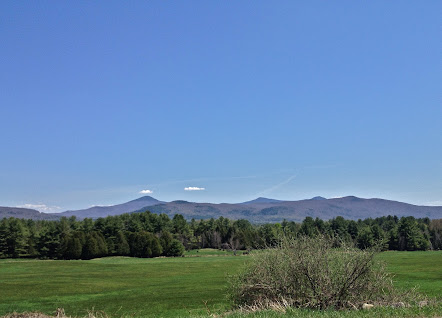 |
| December 31, 2014 |
On river to Fair Haven Pond.
A beautiful, clear, not very cold day. The shadows on the snow are indigo-blue. The pines look very dark. The white oak leaves are a cinnamon-color, the black and red oak leaves a reddish brown or leather-color.
I see mice and rabbit and fox tracks on the meadow. Once a partridge rises from the alders and skims across the river at its widest part just before me; a fine sight.
On the edge of A. Wheeler’s cranberry meadow I see the track of an otter made since yesterday morning.
How glorious the perfect stillness and peace of the winter landscape!
H. D. Thoreau, Journal, December 31, 1854
How glorious the perfect stillness and peace of the winter landscape!
H. D. Thoreau, Journal, December 31, 1854
I see mice and rabbit and fox tracks on the meadow. See December 31, 1855 ("I see many partridge-tracks in the light snow, where they have sunk deep amid the shrub oaks; also gray rabbit and deer mice tracks, for the last ran over this soft surface last night.")
I see the track of an otter made since yesterday morning. See December 31, 1853 ("Saw probably an otter's track, very broad and deep, as if a log had been drawn along. . . .This animal probably I should never see the least trace of, were it not for the snow, the great revealer."); December 6, 1856 (“Just this side of Bittern Cliff, I see a very remarkable track of an otter . . .The river was all tracked up with otters, from Bittern Cliff upward. Sometimes one had trailed his tail, apparently edge wise, making a mark like the tail of a deer mouse; sometimes they were moving fast, and there was an interval of five feet between the tracks.”); January 21, 1853 (“I think it was January 20th that I saw that which I think an otter track in path under the Cliffs, — a deep trail in the snow, six or seven inches wide and two or three deep in the middle, as if a log had been drawn along, similar to a muskrat's only much larger, and the legs evidently short and the steps short, sinking three or four inches deeper still, as if it had waddled along.”); February 4, 1855 ("See this afternoon a very distinct otter-track by the Rock, at the junction of the two rivers.”); February 8, 1857 (“The otter must roam about a great deal, for I rarely see fresh tracks in the same neighborhood a second time the same winter, though the old tracks may be apparent all the winter through.”); February 20, 1856 (“See a broad and distinct otter-trail, made last night or yesterday. It came out to the river through the low declivities, making a uniform broad hollow trail there without any mark of its feet. . . .Commonly seven to nine or ten inches wide, and tracks of feet twenty to twenty-four apart; but sometimes there was no track of the feet for twenty-five feet, frequently for six; in the last case swelled in the outline.”); February 22, 1856 (“Just below this bridge begins an otter track, several days old yet very distinct, which I trace half a mile down the river. In the snow less than an inch deep, on the ice, each foot makes a track three inches wide, apparently enlarged in melting. The clear interval, sixteen inches; the length occupied by the four feet, fourteen inches. It looks as if some one had dragged a round timber down the middle of the river a day or two since, which bounced as it went.”); March 6, 1856 ("On the rock this side the Leaning Hemlocks, is the track of an otter. "); See also March 31, 1857 ("The existence of the otter, our largest wild animal, is not betrayed to any of our senses (or at least not to more than one in a thousand)!"); April 6, 1855 ("it reminds me of an otter, which however I have never seen."); February 20, 1855 (among the quadrupeds of Concord, the otter is "very rare."); January 30, 1854 ("How retired an otter manages to live! He grows to be four feet long without any mortal getting a glimpse of him,"); January 21, 1853 ("Otter are very rare here now.”); and the Natural History of Massachusetts (1842) ("The bear, wolf, lynx, wildcat, deer, beaver, and marten have disappeared ; the otter is rarely if ever seen here at present; and the mink is less common than formerly.")
The perfect stillness and peace of the winter landscape. See December 9, 1856 ("A bewitching stillness reigns through all the woodland and over the snow-clad landscape.”); December 20, 1851 ("Red, white, green, and, in the distance, dark brown are the colors of the winter landscape."); January 2, 1854 (" I wish to get on to a hill to look down on the winter landscape."); January 24, 1852 ("The oaks are made thus to retain their leaves, that they may play over the snow - crust and add variety to the winter landscape")
We spend the whole day cleaning the family room and some of the dust bunnies are the size of sheep
At 11 or so jane suggests we hike up to the view the fireworks start at midnight and last the right amount of time. we walk briskly home. back by 1230 New Year's day 2015.
arrive at the ridge
just in time for the fireworks
midnight new years eve.
midnight new years eve.








